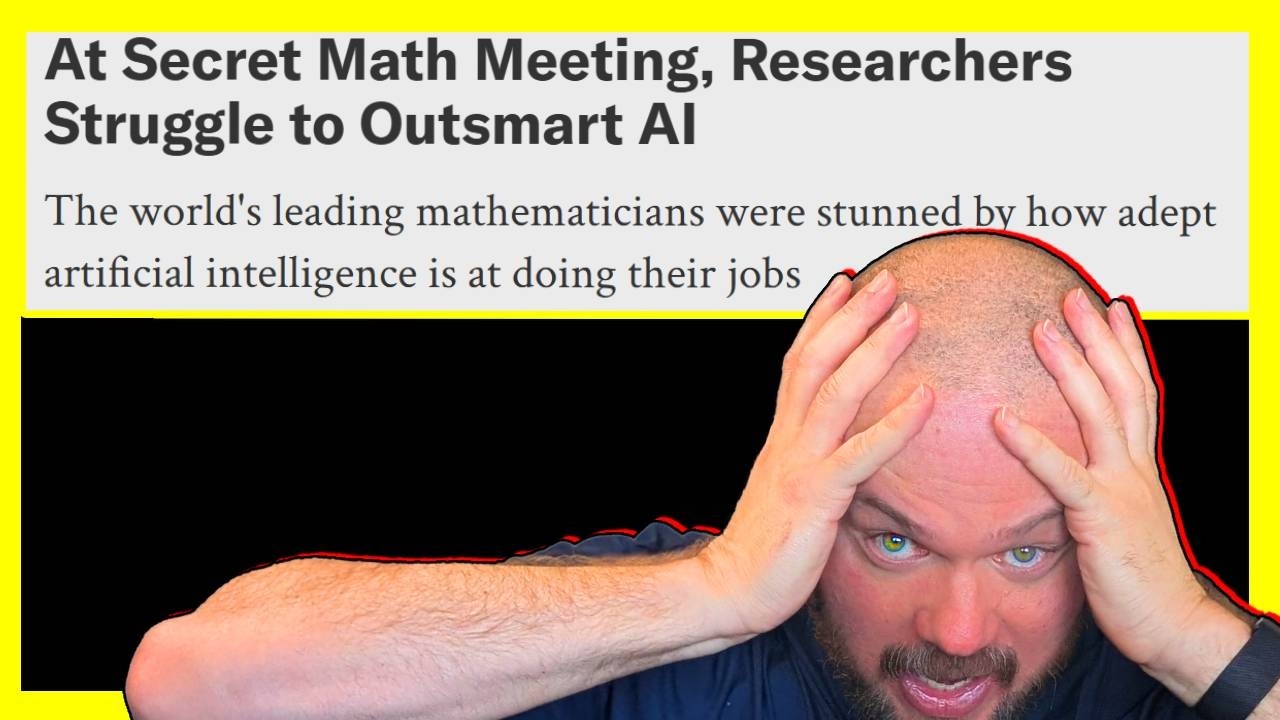The video highlights recent breakthroughs in AI, particularly with models like O4 Mini, demonstrating capabilities to solve some of the world’s hardest math problems and approaching human-level reasoning, sparking both amazement and caution among mathematicians. It discusses the development of new benchmarks, advanced self-improving systems, and philosophical debates about AI’s true reasoning abilities, emphasizing that AI’s rapid progress could significantly impact scientific discovery and challenge traditional views of intelligence.
The video discusses recent breakthroughs in artificial intelligence, particularly in its ability to solve complex mathematical problems. A secret math symposium revealed that AI models, specifically the O4 Mini, demonstrated capabilities comparable to or surpassing human mathematicians in tackling some of the hardest solvable problems. While some experts are amazed by these results, others caution that the language used to describe AI achievements may be exaggerated, emphasizing that AI’s reasoning still relies heavily on pattern recognition rather than genuine understanding or learning.
The speaker explains that new benchmarks like Frontier Math have been created to evaluate AI performance on increasingly difficult math problems, as traditional tests become saturated with near-perfect scores. These benchmarks involve complex questions, some of which are designed to be unsolvable by current AI, and serve as a measure of progress. The O4 Mini, funded and tested through collaborations with organizations like Epic AI, has shown remarkable results, answering questions that previously stumped AI models, and even approaching the level of top human mathematicians in certain tasks.
During the symposium, mathematicians observed the O4 Mini solving open questions in real time, with impressive speed and reasoning processes. The AI demonstrated a form of research and problem-solving that resembled human mathematicians, including reviewing literature and constructing solutions step-by-step. However, concerns arose about the AI’s confidence and occasional correctness despite flawed reasoning, highlighting the challenge of verifying AI-generated solutions and the risk of over-trusting its outputs. The discussion also touched on categorizing problems into tiers, with some questions now solvable by AI and others still beyond its reach, raising questions about future roles for mathematicians.
The video further explores advanced AI systems like Google’s Alpha Evolve, which employs evolutionary algorithms and self-improvement techniques to generate and refine solutions autonomously. These systems can produce thousands of potential solutions, evaluate their effectiveness, and iteratively improve their performance, often surpassing human-designed algorithms. The speaker suggests that combining such self-improving methods with current language models could lead to even more powerful AI capable of independent scientific discovery, including mathematics and other fields, although current implementations still rely heavily on human oversight.
Finally, the speaker reflects on the philosophical debate surrounding AI’s true capabilities, criticizing the dismissive view that AI is merely pattern matching or a “stochastic parrot.” They argue that such reductionist perspectives ignore the potential for AI to develop genuine reasoning and creativity. Citing experts like Scott Ernson, the discussion emphasizes that dismissing AI’s achievements as superficial is shortsighted, and that ongoing advancements suggest AI may soon play a central role in scientific progress. The overall message is that AI’s rapid development challenges traditional notions of intelligence, and its true potential remains to be fully understood.
